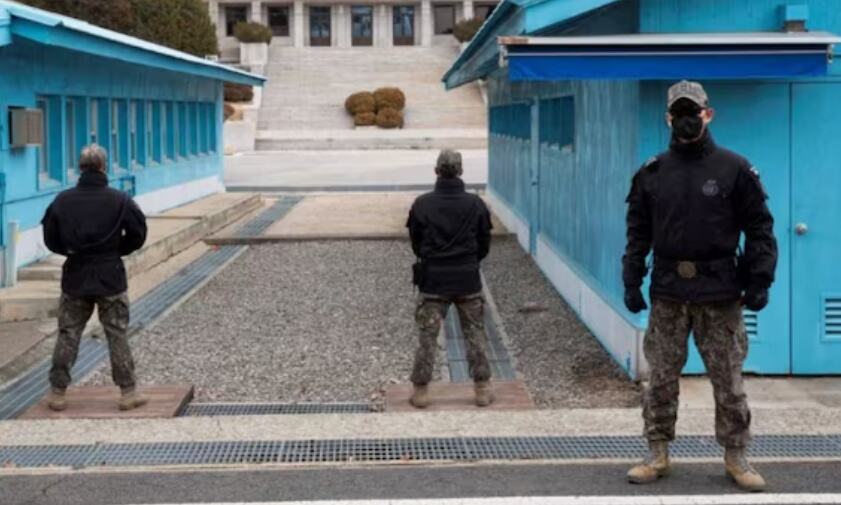U.S. Service member Crosses Inter-Korean Border Without Authorization, Escalating Tensions with North Korea
A U.S. servicemember, Private 2nd Class Travis King, has crossed into North Korean territory without authorization, complicating already tense U.S.-North Korea relations and sparking efforts to resolve the incident. The incident occurred on the same day that a U.S. nuclear submarine visited South Korea.
An U.S. service member has willfully and without authorization crossed the inter-Korean border, leading to their current custody by North Korea, according to the Pentagon.
The service member, identified as Private 2nd Class Travis King, had recently been released from a South Korean prison where he faced assault charges and was awaiting disciplinary action in the United States.
While being escorted to the airport to return to Fort Bliss, Texas, Private King instead joined a tour of the Joint Security Area (JSA) in Panmunjom, a village within the Demilitarized Zone (DMZ) that serves as a site for diplomatic engagements.
During the tour, Private King crossed the Military Demarcation Line into North Korean territory, leading to his capture. Both U.S. and North Korean authorities are working to resolve the incident. The identity of the servicemember will be released after the next of kin have been notified.
The incident occurred on the same day that a U.S. nuclear submarine visited South Korea for the first time since the 1980s. The submarine, an Ohio-class USS Kentucky, arrived at the port of Busan as part of efforts to strengthen deterrence capabilities against North Korea.
North Korea captures US soldier as he crossed the Joint Security Area into North Korea. He was facing disciplinary action and was set to be sent back to the States.
— Jeffery Donahue (@thejeffdonahue) July 18, 2023
The visit is in line with an agreed-upon bilateral agreement between the U.S. and South Korea to periodically send nuclear ballistic missile-capable submarines to the region. Crossing the inter-Korean border is a rare occurrence, as the DMZ is heavily fortified and filled with landmines, electric and barbed wire fencing, and surveillance cameras.
While there have been cases of North Koreans defecting to South Korea, instances of Americans or South Koreans defecting to North Korea are infrequent. The U.S. government has placed a travel ban on American nationals entering North Korea due to the serious risk of arrest and long-term detention.
The ban was implemented after the arrest and subsequent death of American college student Otto Warmbier in 2015. The incident adds to the already tense relationship between the U.S. and North Korea, as Pyongyang continues its pursuit of nuclear capabilities.
The U.S. has deployed its first nuclear-armed submarine to South Korea in 40 years as part of efforts to bolster deterrence against North Korea. Both countries have also agreed to establish a bilateral Nuclear Consultative Group and expand military exercises.
The arrest of Private King further complicates the delicate diplomatic relations between the U.S. and North Korea, as the two countries currently lack formal diplomatic ties.




